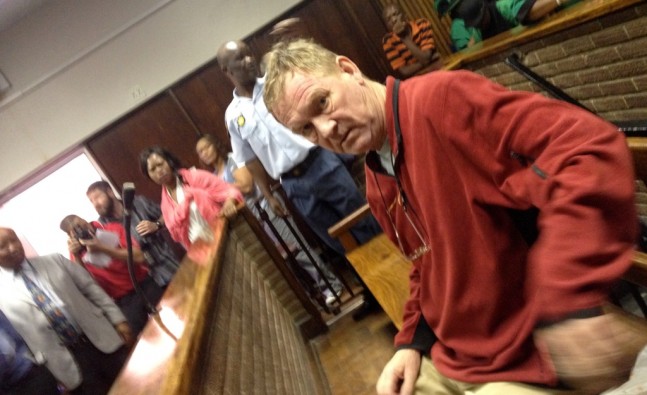Analysts predict hard year for SMEs

Brighton Gumbo, Business Reporter
ZIMBABWE’s Small to Medium Enterprises (SMEs) last year faced colossal challenges that are likely to persist in 2016.
An economic commentator, Trust Chikohora, told Business Chronicle that the informal sector was hit hard by limited access to finance last year.
In addition, he said, the fall of the rand made imports cheaper and exports to South Africa more expensive, thus making SMEs uncompetitive.
In August last year, the currency of Africa’s most-industrialised economy weakened to a low 14.0682 against the dollar due to a slowdown in the Chinese economy, a major source demand for its commodities.
As at yesterday, the rand was 16,7 against the US dollar.
“SMEs faced tremendous challenges in 2015 as a result of a slowdown in the economy,” said Chikohora.
“Among notable challenges the informal sector faced last year was a depressed demand for their products as a result of cheap imports.
“The other thing was the issue of bad debts largely attributed to the liquidity crisis that faced the country.”
The liquidity crisis has hit both businesses and their customers hard.
Local companies are facing challenges covering operational expenses as customers delay to pay for their services.
Bulawayo Vendors and Traders’ Association (BVTA) coordinator Thabang Nare said the sector experienced three significant challenges during 2015 that impacted heavily on the informal sector’s operations.
He said these were the liquidity crisis, regulations and the delays by the government to pay civil servants’ December salaries and bonuses.
“The general liquidity crunch saw the country and its ordinary citizens operating on a shoe string budget where they had to cut down to bare essentials,” Nare said.
“Round about June and July, the then Minister of Local government Ignatius Chombo, issued a directive that the informal traders should be evicted from the central business district. That impacted on the operations of SMEs as they were still busy trying to keep their businesses going.
“At the end of the year, the fact that civil servants didn’t get their bonuses and salaries as promised by the government meant that the SMEs’ business during the festive season was depressed as sales declined due to minimal economic activity.”
The informal sector body representative president, Edward Manning, said with big companies suffering the financial crunch last year, a number of workers were dismissed following the July 17 Supreme Court ruling.
The ruling meant that employers could terminate workers contracts at anytime without offering them packages, provided they are given at least three months notice.
Both private and public companies used the July 17 ruling that exploited the gap in the Labour Act that gives both employers and employees the same legal status under common law.
The position allowed companies to lay off workers on three months’ notice without going through an expensive retrenchment process.
Manning said after the ruling, retrenched employees started flooding the informal sector, and vending became “totally uncontrollable” with increased competition
“The Bulawayo City Council in particular was caught sleeping because it had last availed more vending space about five years ago,” said Manning.
“The local authority’s licensing process was very long and it wasn’t clear, hence we found hindrances in helping those coming in for the first time into the informal sector.”
Nare said the biggest challenge likely to arise for SMEs this year was the looming drought likely to accompany the El Nino phenomenon.
The United Nations Children’s Fund has warned that the strongest El Nino in decades could leave about 1.5 million Zimbabweans in need of food aid by the beginning of 2016.
Nare said the drought would result in resources being diverted to importing food.
“This means products made by people in the SMEs, be it clothing and furniture, among other things, will become of least priority as all the money people will be making is diverted to food”, he said.
Nare said it was imperative for players in the informal sector to formalise their operations to avoid clashes with the authorities.
Last year, local authorities around the country embarked on blitz against informal traders operating at undesignated areas.
The operation, which meant to bring sanity back to the city centres, sparked clashes between municipal police officers and vendors whose wares were confiscated.
“Members need to be registered with the relevant local authority; we think it is not right for people to continue operating without licences,” Nare said.
“Where the licence for a particular trade might not be in existence, we need to lobby the council to recognise that form of business.”
He added that informal traders needed to be innovative and improve their financial recording skills so that they could track whether they were making losses or profits.
“Some SMEs just sit in business and they can’t follow simple business accounting standards which help them to evaluate whether their businesses are growing or shrinking,” said Nare.
Nkosana Mazibisa, an SME entrepreneur in the fast food business, who faced high production costs due to erratic power cuts and cash flow problems in 2015, said it was crucial for the government to have a centre that catered for SMEs by helping them to achieve financial literacy.
However, Mazibisa said banks needed to review their interest rates depending on the sizes of businesses applying for loans. This, he said, would help SMEs to be more competitive.
To prevent clashes between informal traders and the city council in 2016, Manning said as a temporary measure, the local authority should deregulate the informal sector.
“Imagine with the thousands of people on the streets in Bulawayo paying a $1 per day, how much revenue would BCC collect per day?
“Instead of them wasting scarce resources and manpower chasing after the informal sector day in day out, they could be just collecting that money and using it for developing permanent sites, where eventually in one or two, even three years’ time, people could be moved to these sites,” he said.
Manning added that there were many empty buildings in the city which the local authority could rent out to SMEs to maximise its revenue collection.
Chikohora said SMEs’ problems were likely to get worse this year as a result of erratic power cuts, water shortages and an unfriendly business environment in the country.
He said there was a need for the government to come up with investor friendly policies which would instill confidence in the economy and facilitate both local and Foreign Direct Investment (FDI).
“This will create employment and increase demand and result in economic growth,” Chikohora said.
“The indigenisation Act should be repealed and replaced by viable partnerships. There should be policy consistency and we shouldn’t have ministers conflicting each other and creating confusion in the economy.
“There should be investment in infrastructure and utilities.”
In his 2016 National Budget statement in November last year, the Finance Minister, Patrick Chinamasa, said SMEs continued to play a key role in the economy.
He said the sector employed about 60 percent of the country’s workforce, contributing about 50 percent of the country’s gross domestic product.
“SMEs should come up with survival strategies based on cost management, effective marketing, technology, quality and improved competitiveness,” said Chinamasa in the budget statement.
“Therefore, the government will be paying close attention to this sector, with support on resolving the perennial challenges such as financing, infrastructure, technology, management and entrepreneurial skills as well as marketing.”








Comments